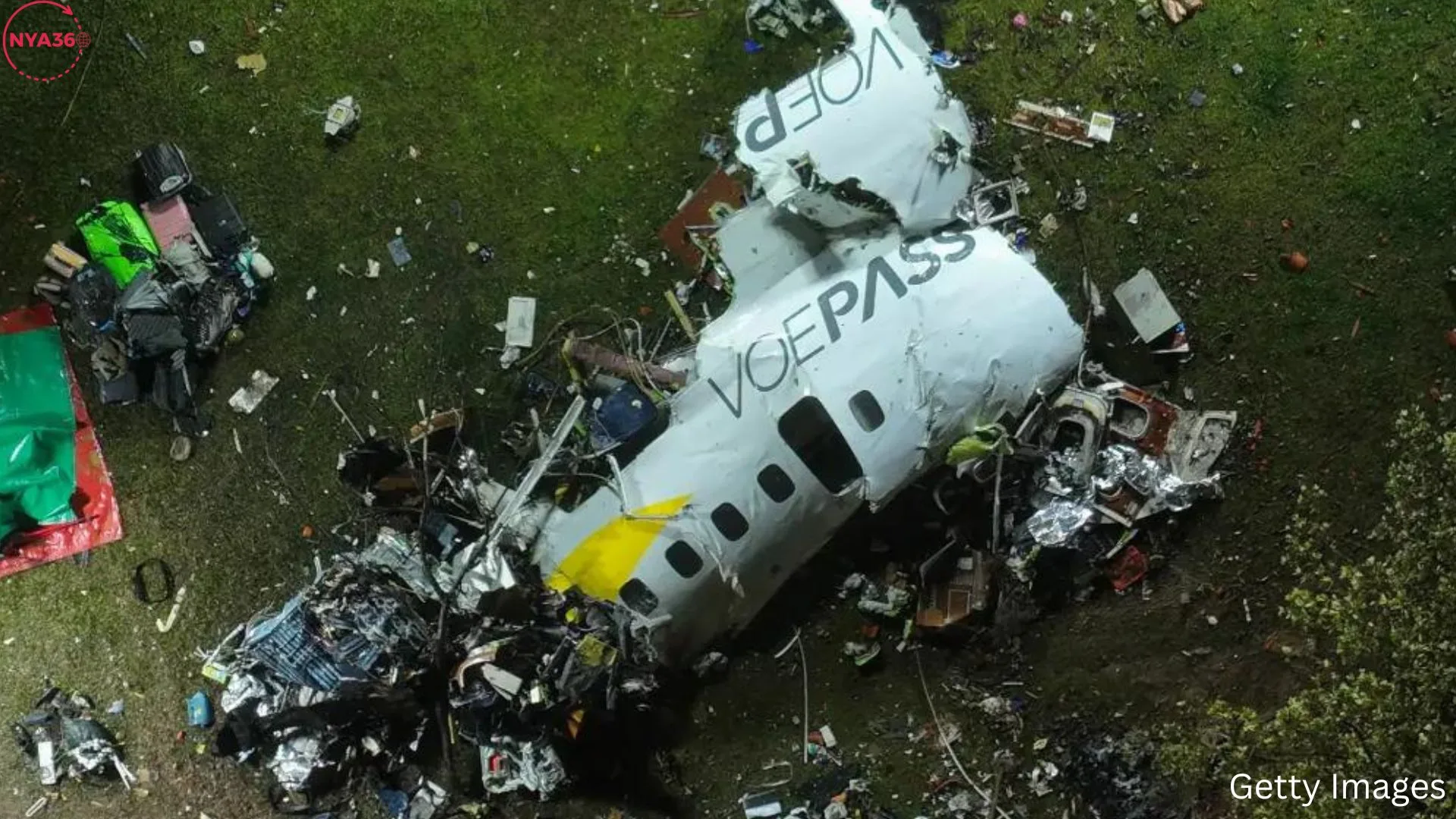The devastating report of an aircraft accident in Brazil, resulting in the loss of 62 lives, including six distinguished oncologists and two resident medics, has profoundly impacted the medical and scientific communities. The incident took place as these experts were on their way to an international conference in São Paulo, where they were reportedly planning to provide compelling data connecting mRNA vaccines, particularly those created for COVID-19, to a condition known as “turbo cancer.” This occurrence has generated a significant amount of controversy, with certain individuals blaming mainstream media for minimizing or disregarding the subject, allegedly due to influence from pharmaceutical firms. Nevertheless, it is imperative to distinguish between factual information and speculative claims and to approach this matter with a discerning and evidence-based mindset.
Tragically, a plane catastrophe occurred in Brazil on Friday, involving 62 passengers, including eight doctors who were specifically committed to cancer research. The crash is now being investigated; however, the loss of life is a significant setback for the worldwide medical community. The six oncologists aboard were acknowledged as prominent authorities in their domain, dedicated to progressing cancer therapy and research. Their premature demise represents a substantial deprivation not just to their relatives and peers, but also to the numerous patients who have derived advantages from their contributions.
The controversy surrounding the crash arises from allegations that these doctors were about to disclose research establishing a connection with mRNA vaccines, namely those employed against COVID-19, and a rise in highly malignant malignancies commonly known as “turbo cancer.” This concept has become popular in certain groups to describe the supposed quick growth of aggressive malignancies after vaccination.
Advocates of this hypothesis contend that the mRNA technology, which forms the basis of the Pfizer-BioNTech and Moderna COVID-19 vaccines, is accountable for initiating a series of autoimmune reactions and cancer-causing processes that result in the swift development of cancer in certain individuals. They assert that the increase in malignant tumors reported after the pandemic is directly linked to the widespread distribution of these vaccinations.

It is crucial to examine these statements with a discerning perspective. The scientific literature does not provide a clear description of the idea of “turbo cancer,” and there is currently no strong evidence suggesting a connection between mRNA vaccines and an escalation in aggressive malignancies. Vaccines, particularly those created for COVID-19, undergo a thorough examination in clinical trials and ongoing surveillance after approval to guarantee their safety and effectiveness. No reliable evidence has been found by the U.S. Food and Drug Administration (FDA), European Medicines Agency (EMA), and other regulatory authorities to support the idea that mRNA vaccines increase the risk of cancer.
Cancer is a multifaceted illness that is influenced by various risk factors, such as genetic predisposition, environmental exposures, and lifestyle decisions. The abrupt onset of severe malignancies in individuals may be fortuitous and not connected to vaccination. Furthermore, the COVID-19 epidemic has produced stress and disturbances, which have resulted in delays in routine medical care. This delay in medical care may have led to the late diagnosis of malignancies, giving the impression that these tumors are more aggressive when, in fact, they were only discovered at a later stage.
The allegation that the mainstream media is suppressing this news due to the influence of pharmaceutical companies is a grave one. It represents a more extensive feeling of skepticism towards both the media and the pharmaceutical sector, especially following the COVID-19 outbreak. Nevertheless, it is crucial to acknowledge that responsible journalism necessitates a dedication to reporting based on factual evidence. When making remarkable claims, like the argument that mRNA vaccinations lead to accelerated cancer growth, it is necessary to provide exceptional data to support them. Unsubstantiated assertions might potentially fuel the spread of false information, leading to significant public health risks.
The untimely demise of these physicians serves as a poignant reminder of the delicate nature of human existence and the imperative to carry forth their efforts in furthering medical expertise and therapy. It serves as a reminder that scientific investigation should be transparent, thorough, and grounded in empirical data. Thoroughly examining all possible hazards linked to emerging technology, such as vaccines, is crucial. However, it is equally imperative to refrain from making hasty judgments based on personal stories or unconfirmed assertions.

Ultimately, the plane crash in Brazil is a very tragic event. However, it is of utmost importance to handle the accompanying controversy with careful consideration. The assertions connecting mRNA vaccinations to accelerated cancer growth necessitate thorough scientific inquiry, and until substantiated data is provided, it is crucial to depend on recognized medical expertise and maintain vigilant oversight of vaccine safety through appropriate channels. Collaboration among the medical community, media, and the public is essential to enable the dissemination of precise, scientifically supported information that prioritizes public health.
Follow us on social media: Instagram, Threads & Twitter X @nya360_ YouTube & Facebook @nya360.





